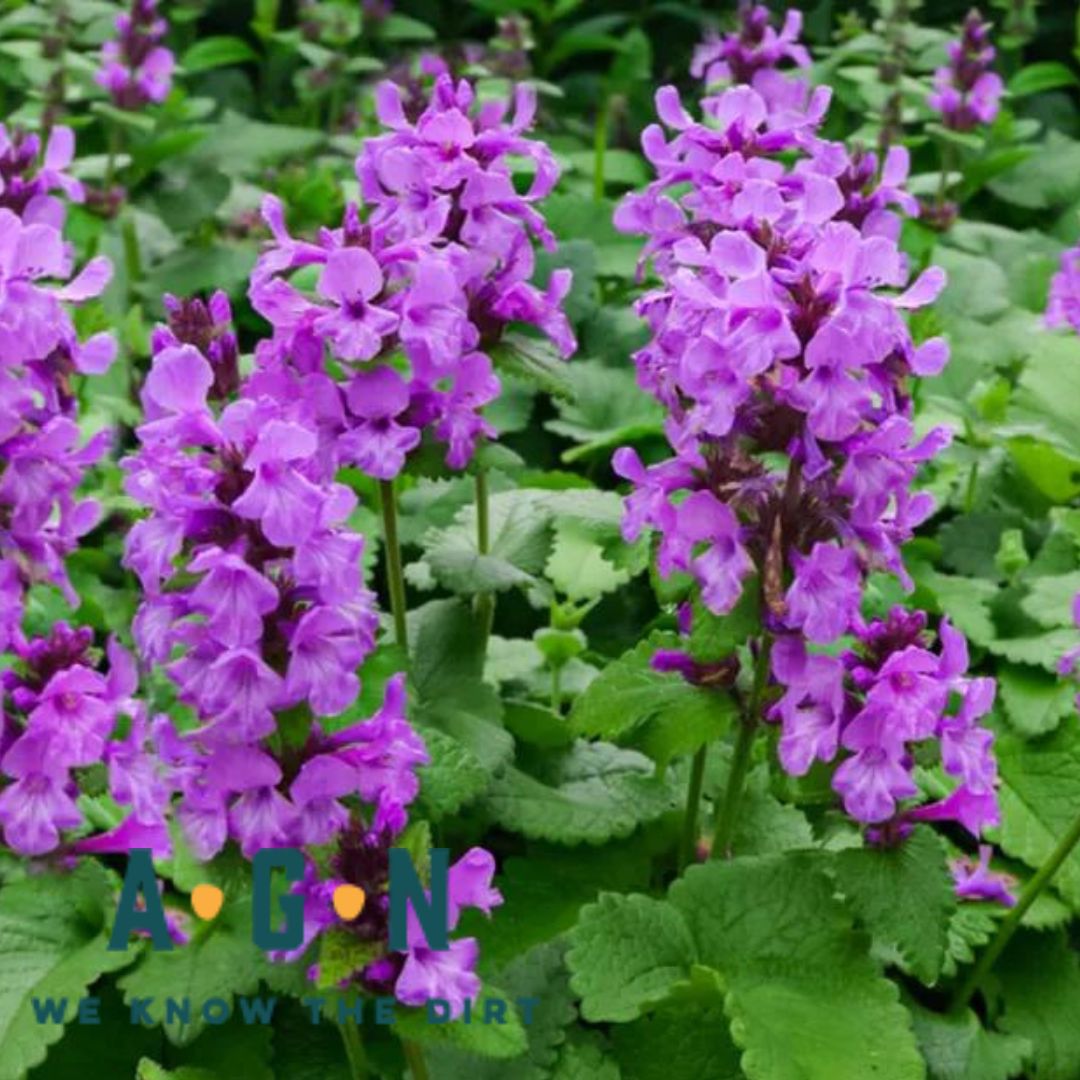





Product page > Variant picker block.Betony (aka Bishops Wort) is a species within the mint family. Like many herbs, has a storied history. As far back as Egyptian times, it was considered a magical herb and was believed to provide protection against harm. During the Middle Ages, people wore amulets made from betony to ward off evil spirits. For the culinary herb garden, betony makes a wonderful replacement for black tea. It is popular as a base herb for herb tea mixes, to which it adds a light, clean flavor. Medicinally, today, betony is used by herbalists for treating tension headaches, migraines, and chronic headaches of hormonal nature. For us, the blooms are beautiful and the foliage is attractive and holds up well in the Tennessee area - good rock garden herb!
To grow Betony successfully, provide it with well-draining soil and partial to full sun exposure. It prefers moist soil but can tolerate some drought once established. Regular watering during dry spells is beneficial. Prune spent flowers to encourage new blooms and maintain a neat appearance.
At maturity, Betony typically reaches a height of 12 to 24 inches (30 to 60 cm) and spreads to about 12 to 18 inches (30 to 45 cm) in width. It is hardy in USDA Zones 4 to 9. Betony's compact and clump-forming growth habit makes it suitable for borders, rock gardens, or cottage-style landscapes.
Betony is not considered toxic to humans, and its leaves were historically used in herbal remedies for various ailments. However, it's essential to avoid ingesting any plant material without proper knowledge and consultation with a qualified herbalist or healthcare professional.
Plant size and shape may differ from what is pictured.
For mail orders: Plants may go through shock during shipping. Upon arrival, take the plant out and water it thoroughly. If you are not satisfied with your purchase, please notify us via email at sales@amgardens.com and include a photo(s) within 24 hours of plant arrival.
For in store purchases: If you are not satisfied with your purchase, please call us at 423-870-5000 or return the plant in its original pot/condition within 3 days. Trees and shrubs have a 1 year warranty (exceptions may apply), but we highly encourage you to give us a call or email if you notice issues with your plant. We'd love to help you figure out what's wrong and save your plant!
Orders are shipped on Wednesdays and Thursdays; if your order is placed on a Wednesday, it may not ship until the following Wednesday. During peak season there may be delays in shipping. If it is too hot or cold, we suggest ordering during milder months to ensure plants arrive in best condition.